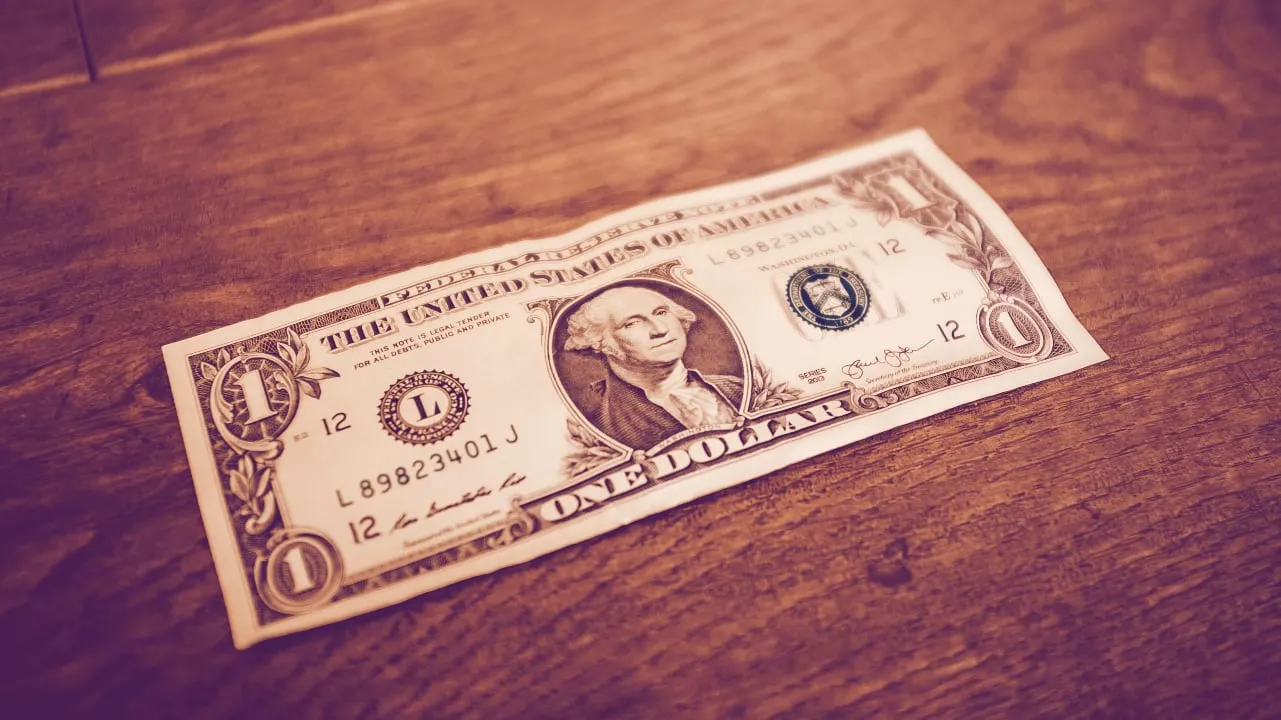In brief
- USDC is a stablecoin issued by Circle.
- Coinbase had said USDC was backed by dollars in a bank account.
- Coinbase's website now says 1 USDC is not necessarily backed by 1 US dollar.
Coinbase, the San Francisco-based cryptocurrency exchange that partnered on the USDC stablecoin alongside FinTech firm Circle, is no longer promising that USDC is fully backed by the dollar.
The exchange dropped the claim from its website because, as it turns out, Circle doesn't have all its reserves in USD.
Stablecoins are digital currencies pegged to the price of another asset. Traders can use them to maximize trading flexibility and take advantage of sudden price movements on an exchange without waiting for cash transfers to be approved. They can also put their money to work by loaning it out and collecting interest on any number of platforms.
One way the price of USDC can be guaranteed is by holding in reserve $1 for each stablecoin issued. For the record, that's just under $28 billion.
"Each USDC is backed by one US dollar, which is held in a bank account," Coinbase wrote in an earlier version of its website. It has recently been changed to read: "Each USDC is backed by one dollar or asset with equivalent fair value, which is held in accounts with US regulated financial institutions."
That edit jibes with a Circle financial disclosure in July showing that the company only held 60% of the total USDC figure in cash. About a quarter is in certificates of deposit and U.S. Treasury securities, while the remainder is in commercial paper and corporate bonds—financial instruments for owning someone else's debt.
The reversal is similar to what happened with stablecoin competitor Tether. For years that company trumpeted its 1:1 dollar backing of USDT coins, until it changed its tune—first by changing web copy, and then by showing statements demonstrating a significant portion of reserves were held in other assets. Its most recent "assurance report" shows nearly half of its holdings are commercial paper.
Federal regulators have been scrutinizing stablecoins of late, especially Tether. Federal Reserve Chairman Jerome Powell told Congress in July that commercial paper is a good investment—until it's not. During a financial crisis, he said, "the market just disappears. And that's when people will want their money." Shortly thereafter, Treasury Secretary Janet Yellen convened federal agency heads, including Powell, to fasttrack stablecoin regulations.
Circle and Coinbase, meanwhile, are trying to play nice with regulators. In April, Coinbase became the first cryptocurrency exchange to be a publicly traded company in the U.S., which means its financial and marketing disclosures are under closer watch. For its part, Circle this week said it would become a "national digital currency bank." As Decrypt reported at the time, it's not clear whether its plan will require it to change the ratios of its reserves.

